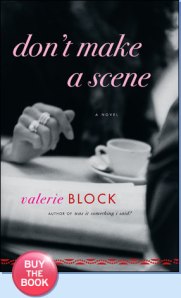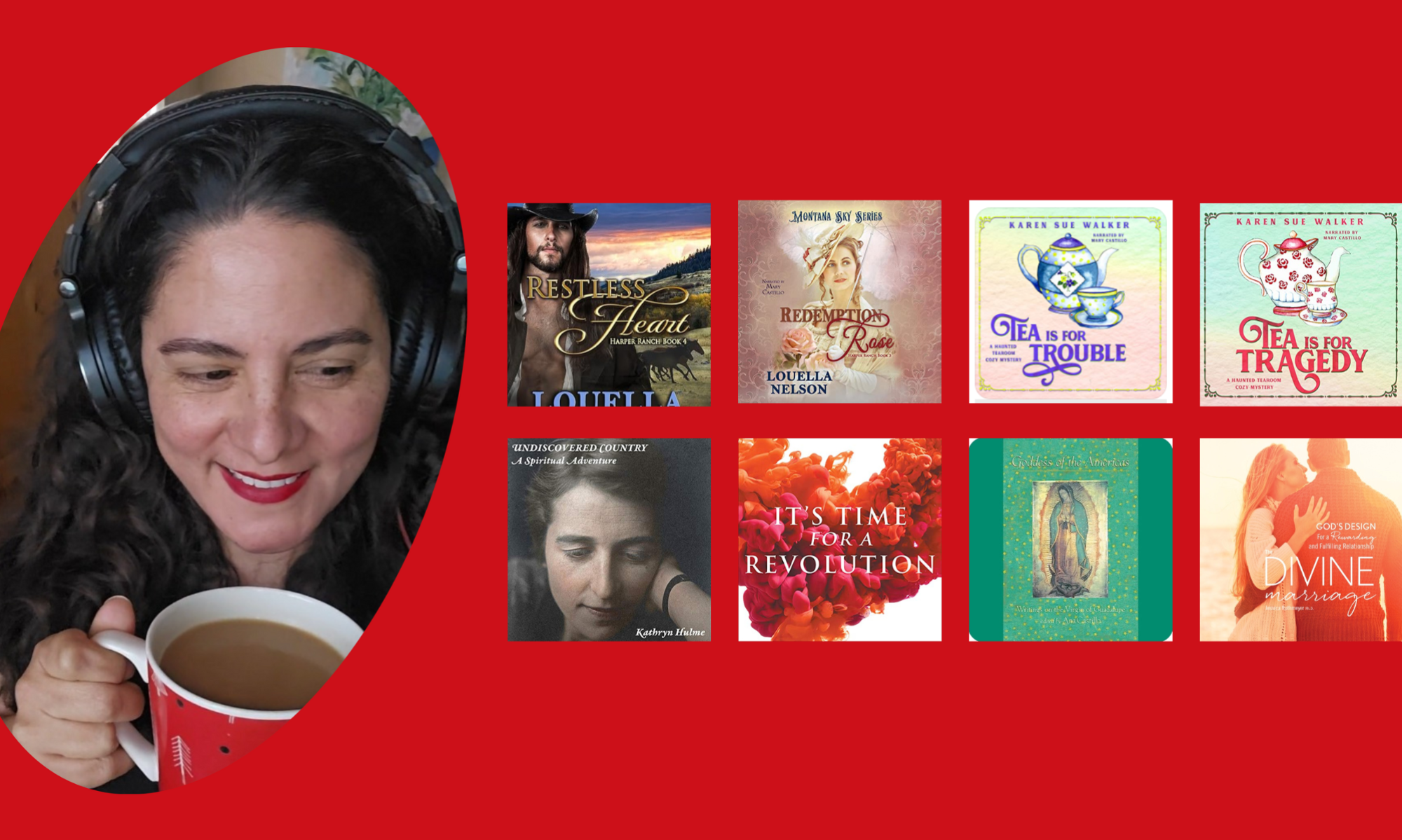
About seven years ago, my mother in-law gave me a copy of Valerie Block’s novel, Was It Something I Said. I remember thinking that it was a clever anti-romantic, romanctic comedy in that the hero and heroine meet when their plane is about to crash and when he tells her that they were fated, she thinks he’s nuts. I loved it and through the years, scenes from that novel would pop up in my mind.
So imagine my surprise when Valerie’s publicist contacted me about her new book, Don’t Make A Scene. I couldn’t believe my luck that I’d get a chance to talk with an author I’d admired for so long.
Chica Lit: What inspired Don’t Make A Scene?
Valerie: I wanted to write about what happens when the eternal allure of classic movies collides with the daily indignities of contemporary life. I had a situation, a woman who begins a romance that ends before it has a chance to take off, with a man whose wife refuses on principle to grant him a divorce. Although they’re attracted to each other, things don’t move forward, and not necessarily because of the stalemate with his wife. Just because he’s a man and she’s a woman, doesn’t mean that they fall in love, and burst into song on public transportation, the way it happens in the movies. I saw their story as the kind of anti-climactic stuff that movies just don’t deal with. The characters of Diane and Vladimir emerged as people as I began to write.
Chica Lit: What were the challenges you faced when writing it?
Valerie: I started writing the novel, and although I was enjoying all the cinema business, the story wasn’t moving forward. I looked over at my husband, Alexis Romay, who grew up in Cuba and came to the US as an adult, in 1999. Alexis is also a writer, and we talk about Cuba every day. At any given time, he is cursing in anger, crying in pain or laughing hysterically about something happening in Cuba that he is reading about on the Internet. Alexis has written editorials that could have been published in 1967 or the day before yesterday. The situation worsens, but never changes.
And at some point, I got jealous. I certainly didn’t envy the repression, the censorship, the privations, the hunger, the anger or the frustration that being born in Cuba entails. But for a writer, Cuba is a never-ending source of great material. I felt sheepish, and wondered if he would call me a colonialist for appropriating his stories, but I asked my husband: Would you mind if I wrote about this? And he said, “You and I could write about the same thing, and it would come out completely differently.” So the leading man became Cuban, and that seemed to make the whole enterprise take off.
Chica Lit: Recently, Hollywood has been seeing a lot of misses versus hits. Do you feel that the quality of storytelling has suffered from the rise in celebrity when audiences are more interested in Brad & Angelina’s personal life, versus their movies?
Valerie: The public has always been ravenous for trashy gossip, and the Hollywood stars have always had two jobs: embodying our higher aspirations and desires on-screen, and feeding our darker needs off-screen. Or, you might say, they are idolized by the public for what they do on screen, and then must pay for the deification by having their personal lives dissected and their privacy invaded at every turn. It’s part of the package. There’s a very interesting book, Intimate Strangers, by Richard Schickel, about the ill-will ordinary Americans bear the very people they put on pedestals. It’s almost a law of nature: when people get that big, they have to be shot down, sometimes – tragically – literally, as in the case of John Lennon.
Film has never been the writer’s medium, but in the studios of yore, there used to be a script department, writers on staff. These days, there’s so little respect for writing in the average Hollywood product, you get the feeling that they want to just eliminate the writer altogether. Sometimes films seem to have been written by the wardrobe designer – did you see the Gwyneth Paltrow bomb Sky Captain and the World of Tomorrow? – or by a sleeping accountant using a previous script for easy reference. When I found out that Titanic had started shooting before the script had even been started, I decided that I didn’t need to see that movie. I may have been the only person on the planet who made that decision, but I stand by it.
Chica Lit: When you switch on the TV and see some of the reality shows that are produced, do you feel as you write/craft novels that you’re casting pearls before swine?
Valerie: You make me laugh! I reject the very premise of reality TV. And as you know, even the least popular cable channels on television – the wood grain channel, the vitamin channel, etc. – get millions of viewers, even on a Saturday at 1:30 am. There are days when I feel like I’m in a dying business. On the other hand, I can’t watch much of what is popular now – I feel unclean! I know there are others who feel the same, and this is who I write for. Books reach people on a very different level. I hope there will always be a call for that, although I know the numbers are mere, when compared to televised competition of any kind.
Chica Lit: How have you grown comfortable in mixing your Jewish heritage with your husband’s Cuban background? Or, does it remain a work in progress?
Valerie: My husband is fascinated by Jewish history and customs, amused by Yiddish, and absolutely enthralled by the ultra Orthodox. I come from a very secular family, and he’s getting a little too Jewish for us! For my part, I’ve been learning Spanish, reading Cuban history and fiction, watching Cuban movies. I am a fanatic for Cuban jazz. But I’m a gringa in the dancing department, alas: I just cannot follow, and we’ve had some very tense moments, as my husband is a terrific dancer, almost professional, and a big showman who likes to do very complicated moves with the hands above the head. I must spend every neuron keeping the beat, etc. Our wedding countdown unfolded like a real-life version of the rehearsal montage from Dirty Dancing, in which the nice Jewish girl doesn’t exactly “get it” in the end.
Enter to win a copy of
Don’t Make A Scene by emailing me at
mary@marycastillo.com with “Don’t Make A Scene” in the subject line. Next Tuesday, I’ll draw one name from a hat and announce the winner!
Visit Valerie Block’s
website, or buy her books!




